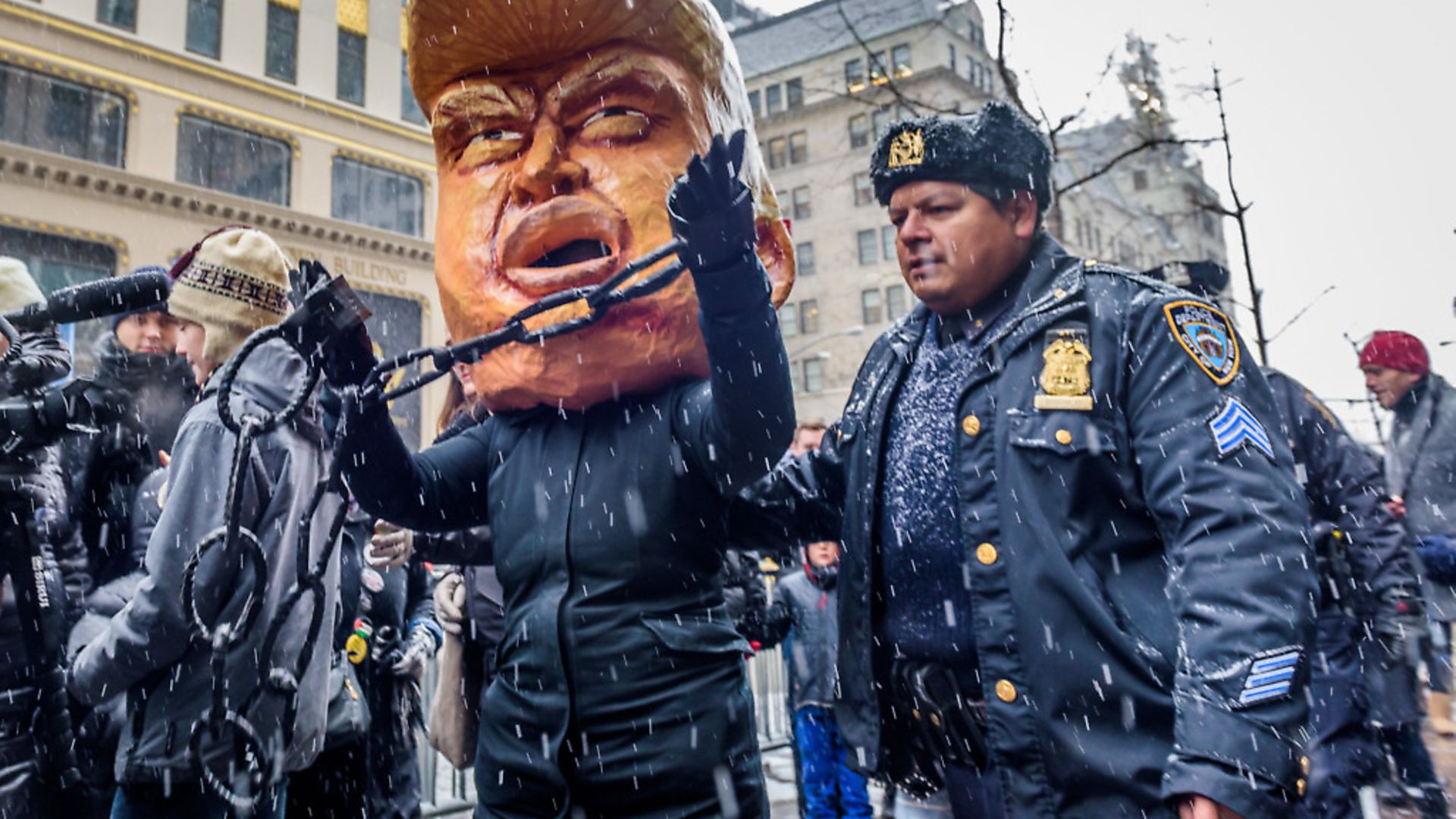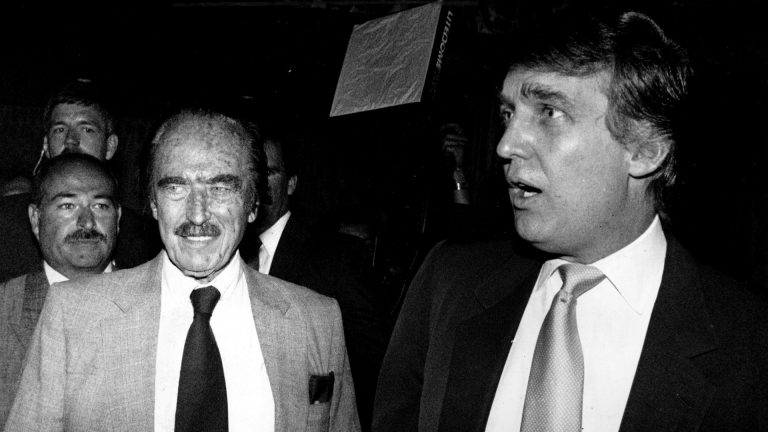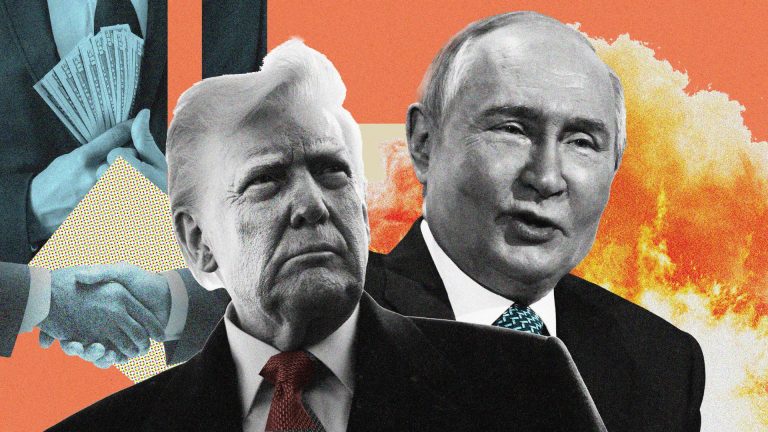
Trump’s fortunes are not looking so rosy, says PAUL CONNEW.
If 2017, and Donald Trump’s first 12 months in the White House, marked a surreal year of living dangerously and chaotically, then 2018 is set to offer not just more of the same, but danger and chaos on an even greater scale.
The explosive combination of November’s mid-term elections, Special Counsel Robert Mueller’s escalating Russian connection criminal investigation and the short-fuse, powder-keg psyche of POTUS himself at least make that a pretty safe forecast.
Despite recent denials by the President and White House officials that he plans to fire Mueller, don’t discount an attempt to do it in the first quarter of 2018. The probe has, according to many legal experts, already established a prima facie case of obstruction of justice against the president and key members of his election campaign team and close associates. And it may be getting closer to also establishing the even more serious charge of ‘collusion’ with Russia during last year’s election campaign involving key Trump players and potentially the president personally.
It looks likely that Jared Kushner, the president’s son-in-law, and his son Donald Jnr may join the list of those arrested and charged, a move that would increase the temptation for Trump to use his power to fire Mueller, pardon those arrested and attempt to face down the inevitable constitutional crisis. Certainly there is plenty of evidence that there are those on the Republican right – including the Freedom Caucus bloc on Capitol Hill – who would encourage or at least acquiesce in such a provocative gamble.
It also explains why, just days before Christmas, more than 40 former US attorneys and moderate Republicans sent two separate letters to the president warning him against any attempt to impede or dismiss Mueller or members of his inquiry team, declaring how ‘critical it is to the interests of justice and public trust to ensure that those charged with conducting complex investigations are allowed to do their jobs free from interference or fear of reprisal’.
In another letter counter-signed by 20 former Republican lawmakers and administrators, Richard Painter, who served as ethics chief in the Bush White House, urged Trump, the GOP leadership and the ‘American people’ to ‘support the work of Special Counsel Mueller to its conclusion, whatever it may be’.
At the same time, former senior FBI agent turned Yale lecturer Asha Rangappa publicly warned that Mueller may not have the constitutional power to criminally indict the president himself, even if he is convinced he’s unearthed the evidence to justify it.
The flurry of activity as 2017 drew to its close was partly-sparked by well-sourced leaks reporting that the president has been stepping up his private rants against Mueller’s ‘witch hunt’ and also threatening to sack both attorney-general Jeff Sessions and his deputy Rod Rosenstein.
Trump’s fury with Sessions is over his unavoidable decision to recuse himself from overseeing the Russian Connection investigation because of his own undeclared Russian contacts. While Rosenstein – Mueller’s direct supervisor – was accused of being a ‘Democrat’ in one behind closed doors Trumpian outburst. (He’s not, he’s a registered Republican!).
In addition, it’s become known that intelligence chiefs have had to tone down any references to Russian dirty tricks during their standard verbal briefings to the petulant president for fear of him irrationally flying off the handle.
For the same reason, Trump’s small army of personal lawyers keep telling him the Mueller investigation is almost finished when all the evidence points in the opposite direction with the probe set to last for most of 2018 and perhaps even into 2019 – unless the president can succeed in either stopping the special counsel from finishing the job or effectively discrediting him in advance.
In this context, it is hard to overlook one sentence in an impromptu, rambling, often incoherent Christmas interview Trump gave the New York Times in which he tossed in: ‘I have the absolute right to do what I want to do with the Justice Department.’ (Lest we forget, Trump’s political hero Richard Nixon once thought the same).
That same interview, incidentally, included 24 clear falsehoods in just 30 minutes. According to New York Times and Washington Post monitors Trump will have committed at least 2,000 palpable ‘falsehoods’ via Twitter or other public statements by the time of his inauguration anniversary on January 20.
But these are all clear signs of just how rattled POTUS and his inner circle are by the Mueller investigation and how much it will dominate the political climate in the build-up to the crucial mid-term November elections.
With opinion polls suggesting the Democrats are well-placed to take back Congress, and possibly the Senate too, the clock is ticking on Trump gambling on a pre-emptive strike to neutralise Mueller’s operation and stand a realistic chance of Capitol Hill backing him to do so.
As for those delicately-balanced elections themselves, the question for Trump and GOP strategists is the extent to which he should campaign. With his personal ratings of well under 40% at a record low for a first year president, Trump is clearly unpopular with the electorate at large, yet retains rock solid among the more conservative GOP support base. It begs the question whether presidential endorsements and personal appearances at campaign rallies will help or hinder Republican candidates.
As well as deciding his political fate in the medium term, the outcome of the elections will also play heavily into whether a Trump-sceptic GOP establishment will want to back The Donald in a 2020 re-election bid or look for a less divisive alternative.
For their part, the Democrats are counting on Trump’s tumbling approval ratings and erratic behaviour to win over enough floating voters and disillusioned GOP moderates to tilt the balance of power their way in one or both Congressional houses. They are also cautiously optimistic hostility to Trump can unite the differences between the pro-Bernie Sanders and pro-Hillary Clinton wings of the party.
They are also buoyed by polls that still suggest Trump’s victory in getting his flagship tax reform bill through just before Christmas isn’t playing well, with many GOP voters seeing it as only a short-term benefit for middle-income and poorer families and a much bigger boost for Corporate America and wealthy individuals like the president and his family. An impression heightened when Trump was overheard triumphantly telling super-wealthy Christmas guests at his $200,000 membership Mar-a-Lago estate: ‘You all just got a lot richer.’ As a new year dawns, Trump’s own fortunes are not necessarily looking so rosy.









